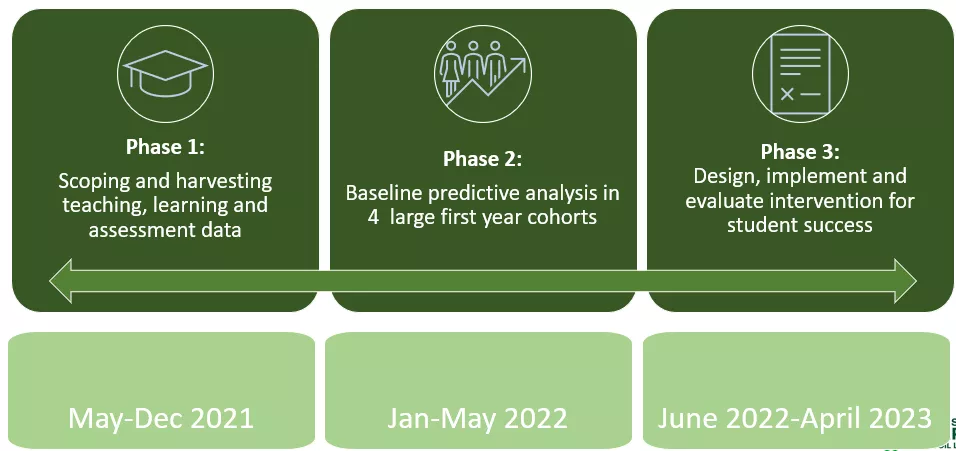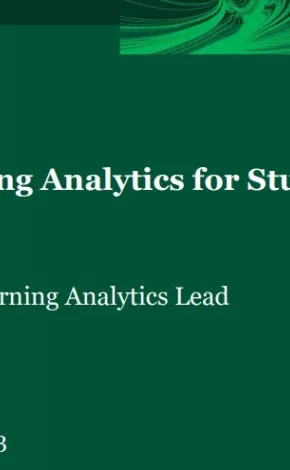Project overview
'STELA Live: Learning Analytics for Student Success' is a project funded under the National Forum for the Enhancement of Teaching and Learning SATLE 2020 call led by Dr Angelica Rísquez (Educational Technologies and Learning Analytics Lead) in collaboration with Sarah Gibbons/Claire Halpin (Student Experience Lead) and Dr Mohd Fazil (STELA Live Lead Researcher) in CTL; Dominic Burns (ITD Business Intelligence); and first year module leaders: Michael P O’Brien (KBS), Donal Palcic (KBS), Teresa Curtin (S&E), Chris McInerney (AHSS). The project also worked with the support from Academic Registry, Data Protection Officer and Registrar.
The project, which has run between May 2021 and April 2023, builds on the ongoing sectoral work on learning analytics and the Online Resource for Learning Analytics (ORLA) in order to take an informed approach to Learning Analytics (Using Learning Analytics to support the enhancement of teaching and learning in Higher Education) and the previous work in the former STELA (STudent Evaluation and Learning Analytics), led by the Quality Office in UL (2019-2021). In STELA Live, we worked to lay the foundations to implement the Policy on the Use of Data to Enhance Teaching, Learning and Assessment (Learning Analytics) and contribute to building institutional data and insight on the possible application of learning analytics interventions in UL at this time, while building a community of practice around their application. In doing so, we worked to progress Aim 3 under Transforming Teaching in the UL Learning, Teaching and Assessment Strategy 2022-2027 to establish new learner analytics capabilities and supports to inform and enhance teaching, learning and assessment.
In summary, the project has conducted a baseline analysis based on machine learning models with 8000 students over four academic years, and a pilot implementation of an intervention for student success with four large first year cohorts. A pilot intervention was designed and evaluated, where students were notified mid-semester of their likelihood to succeed in the module, and referred to appropriate supports. Learnings and insights are being currently shared based on the evaluation of the impact of the initiative. In doing so, we aim to contribute to building institutional data and insights on the possible application of learning analytics interventions at UL. Also, we set the ground to explore sustainable and contextually relevant solutions to the applications of learning analytics through Brightspace, the new VLE at UL.
The project aimed to achieve three main outputs divided into three distinct phases:

A more detailed account of each of these phases is provided below:
|
Phase I Scoping and harvesting teaching, learning and assessment data
|
|
|
|
Phase II Baseline analysis
|
|
|
|
Phase III Design, intervention and evaluation
|
|
|

Presentation for National Forum Student Success Webinar

